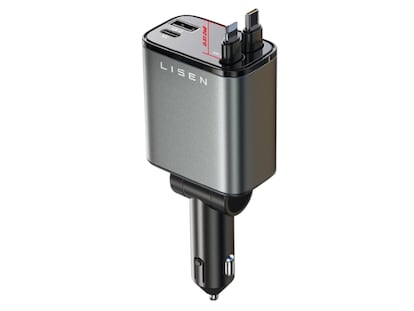Cable sobre una reuni۷؟n sobre propiedad intelectual en la Embajada de EE UU a la que acudi۷؟ Francisco Ros
El entonces secretario de Estado de Telecomunicaciones advierte ante el 'n۷ﺎmero dos' de la legaci۷؟n, Hugo Llorens, de que los sistemas legales de EE UU y Espa?a no son compatibles y que podr۷۹a ser imposible dar los pasos exactos que el Gobierno norteamericano quiere
| ID: | 153245 |
| Date: | 2008-05-09 17:34:00 |
| Origin: | 08MADRID520 |
| Source: | Embassy Madrid |
| Classification: | UNCLASSIFIED//FOR OFFICIAL USE ONLY |
| Dunno: | 08MADRID477 |
| Destination: | VZCZCXYZ0009 PP RUEHWEB DE RUEHMD #0520/01 1301734 ZNR UUUUU ZZH P 091734Z MAY 08 FM AMEMBASSY MADRID TO RUEHC/SECSTATE WASHDC PRIORITY 4744 INFO RUEHFR/AMEMBASSY PARIS 1493 |
UNCLAS MADRID 000520 SENSITIVE SIPDIS STATE FOR EEB/TPP/IPE, EUR/WE STATE PASS USTR E.O. 12958: N/A TAGS: ETRD, KIPR, SP SUBJECT: SPECIAL 301 IPR FOLLOWUP MEETING WITH SECSTATE ROS REF: A. MADRID 477 B. MADRID 293 C. MADRID 211 D. 07 MADRID 2128 1. (SBU) Summary: The vice-minister responsible for intellectual property rights (IPR), Francisco Ros, told Charge on May 6 that the ending of the national election season meant that this was the time for the new GOS to make progress on IPR issues. He said the GOS intended to pass a new IPR law during this legislature, and he thought the new law could increase the visibility of the existing interministerial anti-piracy commission. He cautioned that the U.S. and Spanish legal systems were not compatible and that it might not be possible to take the exact steps the USG wanted, particularly on the 2006 Justice Ministry file sharing Circular. Charge urged Ros to amend the Circular to address industry concerns, and Ros emphasized that his office understood the concerns and would see what it could do. He agreed to set up a working group on IPR issues with Embassy staff, and he welcomed the idea of visiting the U.S. to discuss IPR and other issues. Although Ros complained about the phrasing of the Special 301 report and appeared at times to be focusing too much on philosophical questions, he also showed a clear determination to make progress now that it is politically possible. End Summary. 2. (U) Charge Llorens met on May 6 with Francisco Ros, GOS Secretary of State (vice minister) for Telecommunications and the Information Society within the Ministry of Industry, Tourism, and Commerce, to discuss USG IPR concerns and follow up on the Special 301 Watch List announcement and the Ambassador's April 24 meeting with Ros' minister, Minister of Industry, Tourism, and Commerce Miguel Sebastian (ref a). Charge was accompanied by EconCouns. Ros was accompanied by Information Society Development Director General David Cierco Jimenez and Deputy Director General for Information Society Services Salvador Soriano. No Surprise on Watch List, but Disagreement over Phrasing --------------------------------------------- ------------ 3. (SBU) Ros said he had realized it would be difficult for Spain to avoid Watch List placement this year. He said on several occasions during the meeting that the election season had made certain actions politically impossible during the last year. Ros described some of the language in the report as "a little excessive." In questioning whether it was necessary or accurate to call the GOS' efforts inadequate, he reviewed positive developments during the last year, including a high-profile international conference his office had organized (ref d), GOS promotion of negotiations between ISPs and rights holders, a GOS program to reduce use of illicit software, and significant declines in the rate of software piracy and street piracy. He said that during the visit two weeks ago of Microsoft CEO Steve Ballmer, unlike on previous visits Ballmer had no complaints about GOS actions against piracy. He also questioned the U.S. copyright industry's statement that Spain has one of Europe's worst internet piracy problems, saying that he was not aware of any hard data that could be used to compare piracy rates between countries. He cited an International Intellectual Property Alliance (IIPA) report as saying that music piracy and entertainment software piracy rates had declined, and he said Culture Ministry data showed that the piracy rate was below IIPA's estimate. Next Steps and New Law ---------------------- 4. (SBU) Looking to the future, Ros assured Charge of the GOS' determination to address IPR concerns and said his office wanted to see what it could do as soon as possible, saying this was the best moment for action. He echoed Minister Sebastian's statement that the GOS intended to pass a new intellectual property law. The lead was with the Culture Ministry, which had asked Ros' secretariat for assistance. On notice and takedown and the Justice Ministry's 2006 Circular, he cautioned that mechanisms in U.S. law could not be transferred directly to Spanish law. He said he had spoken to the Prosecutor General ("Fiscal General"), who had assured him that peer-to-peer file sharing in and of itself was not in fact illegal under Spanish law, although judicial action was possible if it was proven that file sharing was used illegally (i.e., to violate property rights). He added that Spain would need to find other ways to protect IPR. The Charge emphasized that businesses viewed the Circular as prejudicing their legitimate efforts to protect their property, and he urged Ros to see how the Circular could be changed to address these concerns. 5. (SBU) Ros said that unauthorized downloads were a difficult topic that posed problems for all countries, and he acknowledged that many Spanish users did not see them as wrong. He said his secretariat would consider whether it could do "something in this line." He said his office would be looking closely at France's experience. His impression was that to date, France's announced system had not yet been put in practice, and it was not entirely clear how or whether the system would work. (Note: As a result of our encouragement, Cierco and Soriano both plan to attend Embassy Paris' June 2 copyright and counterfeit conference.) Intragovernmental Coordination ------------------------------ 6. (SBU) In response to Charge's comments about the importance of improved coordination of GOS IPR efforts, Ros noted that the existing intellectual property law had established an interministerial anti-piracy commission under the leadership of the Ministry of Culture. He thought that as part of the new law it might be possible to give that commission more visibility and media prominence. The Charge welcomed this possibility. He stressed the value of increased public outreach efforts by the GOS, noting that while the French system may not be in place, President Sarkozy has laid down a marker about the importance of IPR protection. Coordination with USG and Visit to U.S. --------------------------------------- 7. (SBU) Ros agreed to set up a working group with Embassy staff to consider IPR issues. Post and Ros' staff are seeking to meet within two weeks. The Charge encouraged Ros to visit the U.S. to discuss its efforts and plans with the USG and industry representatives. Ros was very receptive and spoke of the possibility of going in June or early July. Cierco noted that Spain's rapid growth in internet use meant that it should be a potentially attractive market for U.S. companies. Post will follow up separately on plans for a trip. MPA Access ---------- 8. (SBU) Ros expressed concern at having heard from his minister that the new Motion Picture Association (MPA) representative in Madrid thought he did not have sufficient access to the GOS. One of the representative's main concerns is that he and other content provider representatives are not members of the GOS Telecommunications and Information Society Advisory Council (CATSI). Ros acknowledged that the CATSI's composition was outdated and no longer realistic, but he said it could only be changed by law and that there had not been time to do so before the March elections. He said that the GOS hoped to make that change, and he noted that the internet service provider association REDTEL also did not participate and wanted to do so. He welcomed the prospect of suggestions from MPA or other industry groups. Deputy Chief of Staff --------------------- 9. (SBU) Separately, EconCouns met on May 6 with Minister Sebastian's deputy chief of staff, Juan Abascal, to follow up on the meeting with the Minister and provide Abascal, who is new in his position, with background on USG concerns. Abascal brought up the Minister's interest in an Embassy-GOS working group and promised to help set one up. He said First Vice President Fernandez de la Vega's office had been heading the effort to draft a new IPR law and had been working with the Ministry of Culture as well as Industry and Commerce. Comment ------- 10. (SBU) Comment: Although Ros appeared to us at times to be focusing on philosophical questions and nonessential details, we were encouraged by his determination to make progress now that the GOS believes it is politically possible. The drafting of a new law should offer a significant opportunity, and we will engage with the Ministry of Culture as well as Ros' office. The interest in raising the profile of the interministerial piracy group is welcome. While Ros noted several times that the Spanish and U.S. legal systems were not compatible and so some of what we wanted might not be possible in the way we wanted, our interest is in addressing the problem effectively regardless of which mechanisms are used. Interestingly, Ros did not devote much time in the meeting to discussing the talks his ministry has encouraged between content providers and ISPs. After several weeks of working on process issues, the first substantive working group meetings took place this week, and we are seeking industry reactions. We also were pleased with Ros' interest in visiting the U.S. and will work with Washington agencies and industry groups to arrange a strong program that can help advance our interests. End Comment. Llorens |
Traducci۷؟n autom۷۱tica. Puede que el texto traducido no sea fiel al original
Tu suscripci۷؟n se est۷۱ usando en otro dispositivo
?Quieres a?adir otro usuario a tu suscripci۷؟n?
Si contin۷ﺎas leyendo en este dispositivo, no se podr۷۱ leer en el otro.
FlechaTu suscripci۷؟n se est۷۱ usando en otro dispositivo y solo puedes acceder a EL PA?S desde un dispositivo a la vez.
Si quieres compartir tu cuenta, cambia tu suscripci۷؟n a la modalidad Premium, as۷۹ podr۷۱s a?adir otro usuario. Cada uno acceder۷۱ con su propia cuenta de email, lo que os permitir۷۱ personalizar vuestra experiencia en EL PA?S.
?Tienes una suscripci۷؟n de empresa? Accede aqu۷۹ para contratar m۷۱s cuentas.
En el caso de no saber qui۷۵n est۷۱ usando tu cuenta, te recomendamos cambiar tu contrase?a aqu۷۹.
Si decides continuar compartiendo tu cuenta, este mensaje se mostrar۷۱ en tu dispositivo y en el de la otra persona que est۷۱ usando tu cuenta de forma indefinida, afectando a tu experiencia de lectura. Puedes consultar aqu۷۹ los t۷۵rminos y condiciones de la suscripci۷؟n digital.




























































